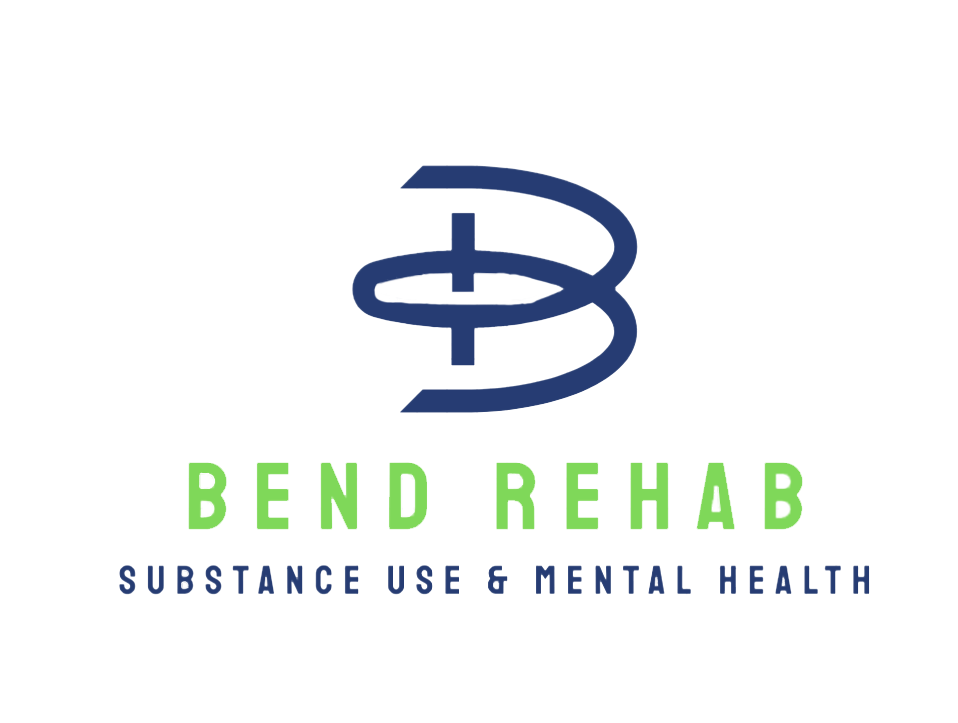Bend OR Drug Rehab Center
Bend, OR, renowned for its stunning landscapes and outdoor recreation opportunities, harbors another, less-discussed reality—a growing struggle with substance abuse and addiction. While the city is known for its beauty and vibrant community, many residents face daily battles with addiction, making the need for recovery support more critical than ever. Often unseen by the broader public, a Bend OR drug rehab center serves as vital lifelines, offering individuals a chance to overcome addiction and rebuild their lives. These centers not only provide medical and therapeutic support but also foster a sense of community and understanding that is essential for long-term recovery. To demystify the process and highlight the transformative potential of addiction recovery, this article takes an inside look at a typical day in a Bend OR drug rehab center. With a focus on holistic healing, many rehab centers also incorporate activities like meditation, fitness, and even outdoor excursions, taking advantage of Bend’s natural beauty to inspire and motivate. Discover how these centers serve as beacons of hope, helping individuals reclaim their lives and find a brighter, sober future.
Setting the Tone for the Day
Mornings at a Bend OR drug rehab center begin with purpose and structure. Residents typically wake up early, as maintaining a consistent sleep schedule is an essential part of recovery. Before breakfast, many centers offer the option of meditation, mindfulness practice, or prayer. These moments of quiet reflection allow individuals to ground themselves for the day ahead. For many, these exercises provide clarity and peace, creating a foundation to face challenges with resilience.
Group Therapy and Goal Setting
After breakfast at a Bend OR drug rehab center, a group therapy session may be offered. Group therapy fosters connection and community, allowing individuals to share their experiences, set daily goals, and offer each other encouragement. Positive affirmations often play a central role here, reinforcing the importance of self-worth and accountability. For example, residents may articulate goals like completing a journaling exercise, confronting past trauma during individual therapy, or simply maintaining focus on the day’s sessions. These daily intentions guide participants toward incremental progress in their recovery.
Learning About Addiction and Recovery
Education is a significant aspect of rehab, as it empowers residents with the knowledge they need to understand and overcome their challenges. Mid-mornings often feature interactive workshops designed to provide deeper insights into the nature of addiction, its psychological and physical impacts, and its effects on relationships and overall well-being. These sessions might cover topics such as the science of addiction, coping mechanisms, triggers, and relapse prevention strategies. By offering a safe space for learning and discussion, these workshops help residents gain clarity and build the tools necessary for long-term recovery.
- Identifying triggers and cravings to understand what prompts certain behaviors or habits, helping you take control and develop healthier responses.
- Exploring the science behind addiction: understanding its causes, how it affects the brain, and the pathways to recovery.
- Practicing effective coping mechanisms to manage stress, stay calm in challenging situations, and maintain emotional well-being.
For instance, residents might learn about how stress impacts relapse risk through educational workshops or guided discussions. They may also participate in interactive role-playing exercises designed to help them develop strategies for handling challenging social situations, such as resisting peer pressure or managing conflict effectively. These activities aim to build both awareness and practical skills for maintaining long-term wellness.
Personalized Recovery Plans
Individual counseling is another hallmark of recovery programs. Each resident meets regularly with a licensed therapist to discuss personal struggles, emotions, and achievements. These one-on-one sessions provide a safe space to dig deeper into trauma, address underlying mental health challenges, and refine personalized recovery plans. Counselors often implement evidence-based approaches like cognitive-behavioral therapy (CBT) or dialectical behavior therapy (DBT) to equip individuals with lifelong skills for managing stress and regulating emotions.
Healing Beyond Talking
Afternoons are filled with hands-on therapeutic activities designed to support recovery on a deeper level. Many Bend, OR drug rehab centers incorporate holistic modalities that focus on addressing both the physical and emotional aspects of healing. These activities are carefully chosen to help individuals rebuild their sense of balance and well-being. Examples include yoga sessions to improve mindfulness and reduce stress, art therapy to foster self-expression, and outdoor activities that reconnect participants with nature while promoting physical health.
- Yoga and meditation: Helps improve physical fitness by enhancing flexibility, strength, and balance, while also promoting stress reduction by calming the mind and encouraging relaxation through focused breathing and mindfulness.
- Art therapy: Provides a creative and non-verbal way to explore and process emotions, allowing individuals to express feelings that may be difficult to put into words. Through activities like painting, drawing, or sculpting, it promotes self-discovery and emotional healing.
- Equine therapy: A therapeutic approach that helps build trust, patience, and emotional awareness through guided interactions with horses. Participants learn to care for, communicate with, and develop a bond with these gentle animals, fostering personal growth and healing.
These therapies help residents reconnect with themselves and heal in ways that traditional methods may not fully address by providing alternative outlets for self-expression and personal growth. For example, someone struggling with emotional expression might discover untapped strength and a new way to communicate their feelings through creative activities like painting or sculpting. These artistic processes can offer a safe space for exploring emotions, reducing stress, and fostering a sense of accomplishment, all of which contribute to deeper healing and self-awareness.
Physical Health and Wellness
Rehab programs often emphasize the importance of physical health as a key component of recovery. Activities such as guided fitness sessions, including yoga or strength training, help participants build strength, improve mobility, and boost overall energy levels. Additionally, nature walks along Bend’s picturesque trails provide a calming environment to connect with the outdoors, reduce stress, and promote both mental and physical well-being. These activities not only enhance physical fitness but also contribute to a healthier, more balanced state of mind during the recovery journey.
Building a Future of Stability
Rehabilitation isn’t just about breaking free from substance use—it’s about building a foundation for a healthier, more fulfilling life. Part of this journey involves preparing for life beyond rehab, which is why many centers incorporate job skills training into their programs. These programs help residents regain confidence, develop a sense of purpose, and acquire practical skills needed to reintegrate into the workforce. Residents may learn:
- Learn effective resume-building strategies and master key interview techniques to stand out in your job search.
- Budgeting and financial literacy: Understanding how to manage money effectively, create budgets, track expenses, and make informed financial decisions to achieve short-term and long-term financial goals.
- Time management techniques and the importance of workplace etiquette for fostering a productive and professional environment
Such training is vital for rebuilding confidence, especially for individuals whose addiction previously disrupted their ability to maintain stable employment. By focusing on skill development and providing a supportive environment, these programs help participants regain a sense of purpose and prepare them to re-enter the workforce with renewed self-assurance.

Staying Sober Long-Term
Relapse prevention is a core focus area later in the day, designed to equip residents with the tools and knowledge they need to maintain long-term sobriety after leaving the center. Residents participate in structured sessions specifically tailored to teach effective strategies for handling triggers, managing stress, and avoiding high-risk situations. These sessions may include practical techniques, such as developing a strong support network, recognizing warning signs of relapse, and creating actionable plans to stay on track. By focusing on these skills, residents are empowered to build a sustainable, substance-free future.
- Crafting personalized relapse prevention plans tailored to individual needs, focusing on strategies and support systems to maintain long-term recovery
- Developing support networks to foster collaboration, share resources, and provide assistance within communities or organizations.
- Recognizing high-risk environments and behaviors that could lead to potential harm or unsafe situations, and understanding how to identify and mitigate these risks effectively.
These tools empower individuals to stay on course, providing guidance and support when faced with real-life challenges, unexpected obstacles, and everyday temptations that might otherwise derail their progress.
Connection and Reflection
Structured free time provides an invaluable opportunity for residents to reflect, unwind, or connect with their peers in meaningful ways. During this time, individuals can choose activities that resonate with their personal needs and preferences, whether it’s journaling to process thoughts and feelings, reading to expand their knowledge or escape into a good story, or engaging in leisure activities like board games that foster camaraderie and teamwork. This intentional downtime not only serves as a chance to recharge but also promotes personal growth, emotional well-being, and the building of stronger, supportive relationships within the community.
The Role of Community
Social dinners and communal activities are often highlights of the day in rehab centers, providing residents with opportunities to connect, share, and unwind together. Whether it’s gathering around a table for a hearty meal or participating in group outings like nature walks or recreational games, these activities foster a sense of togetherness and belonging. Sharing these moments not only helps break the isolation many feel during recovery but also reinforces the strong sense of community that rehab centers strive to cultivate. These bonds remind residents that they are not alone in their journey, offering emotional support and camaraderie through shared struggles and triumphs, which can be incredibly empowering as they work toward healing.
Reflecting on Progress
Evenings usually include a group meeting where participants can come together to reflect on their day in a supportive and open environment. These discussions provide an opportunity to celebrate personal victories, whether big or small, share insights gained from facing challenges, and draw inspiration and motivation from one another for the days ahead. It’s a time for connection, where residents can offer encouragement and build a sense of community. Additionally, group journaling sessions or guided gratitude exercises may be incorporated. These practices encourage participants to focus on their positive experiences, acknowledge their progress, and recognize achievements during their stay, fostering a mindset of growth and optimism.
Preparing for Rest
After a fulfilling day, a structured night routine helps residents wind down and prepare for a restful evening. This routine might include activities such as reading a favorite book to relax the mind, enjoying a warm cup of herbal tea to soothe the body, or taking a few moments to prepare their sleep space by tidying up, dimming the lights, and setting a calming atmosphere. Some may also practice light stretches or mindfulness exercises to release tension. The emphasis remains on creating healthy habits that promote mental clarity, relaxation, and deep, restorative sleep, setting the tone for a fresh start the next day.
Conclusion
Life inside a Bend OR drug rehab center is more than just a step toward sobriety—it’s a transformative journey toward rediscovering hope, strength, and a sense of community. Each day is carefully structured with purpose, offering a blend of therapies, group support sessions, and activities that promote empowerment, healing, and the practical tools needed for a sustainable recovery. The caring, professional staff works closely with individuals to address not only the physical aspects of addiction but also the emotional and psychological factors that contribute to substance abuse. For those struggling with addiction, making the decision to seek help can feel overwhelming and even intimidating. The structured routines, combined with a focus on individualized care, create a strong foundation for building healthy habits and developing coping strategies that will last beyond treatment. If you or a loved one are ready to take that first step toward recovery, know that you don’t have to face it alone. Reach out today and connect with our team by calling 1 (541) 802-7214 or clicking Bend Rehab. Your path to healing starts with one courageous decision, and it’s never too late to create a better tomorrow.




